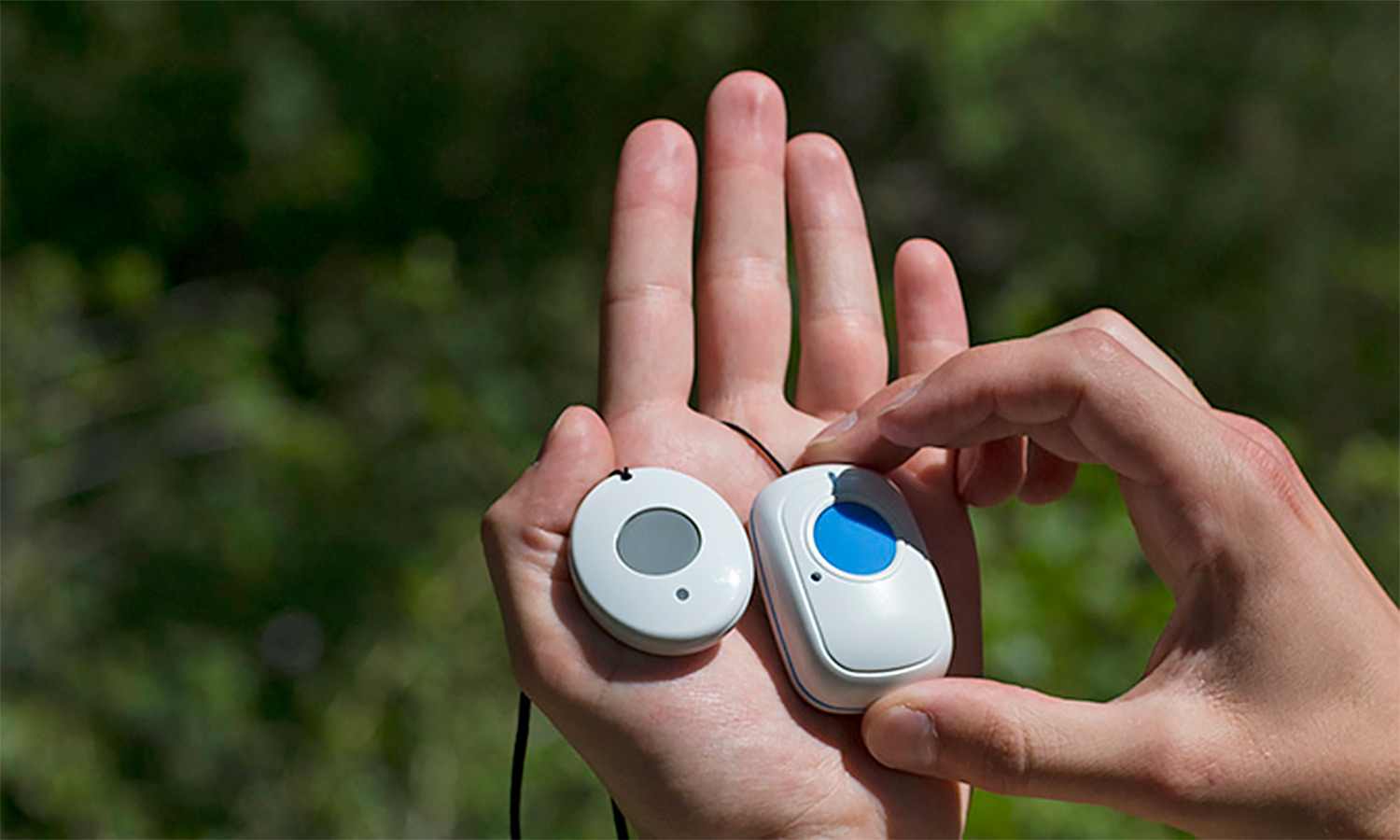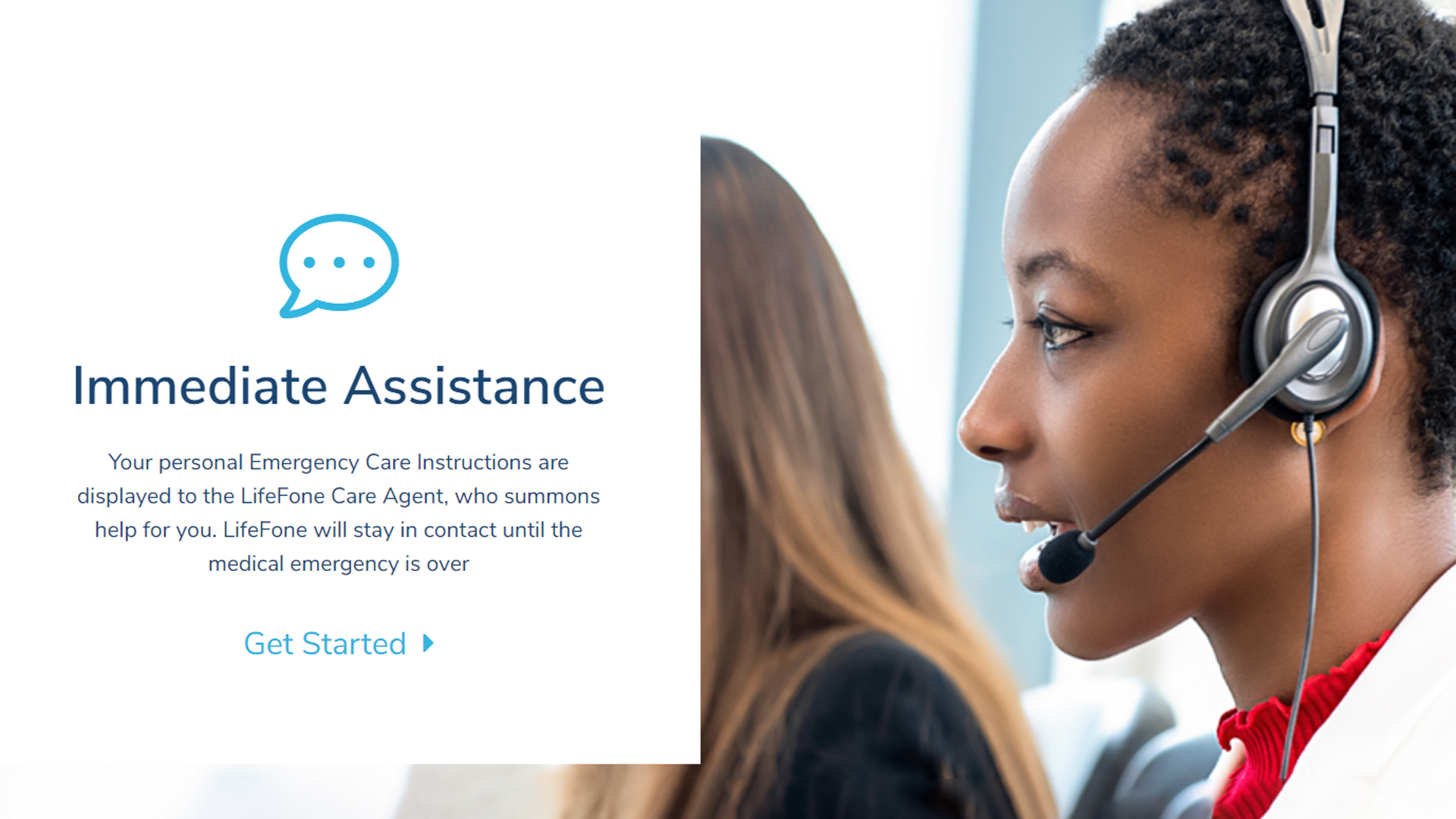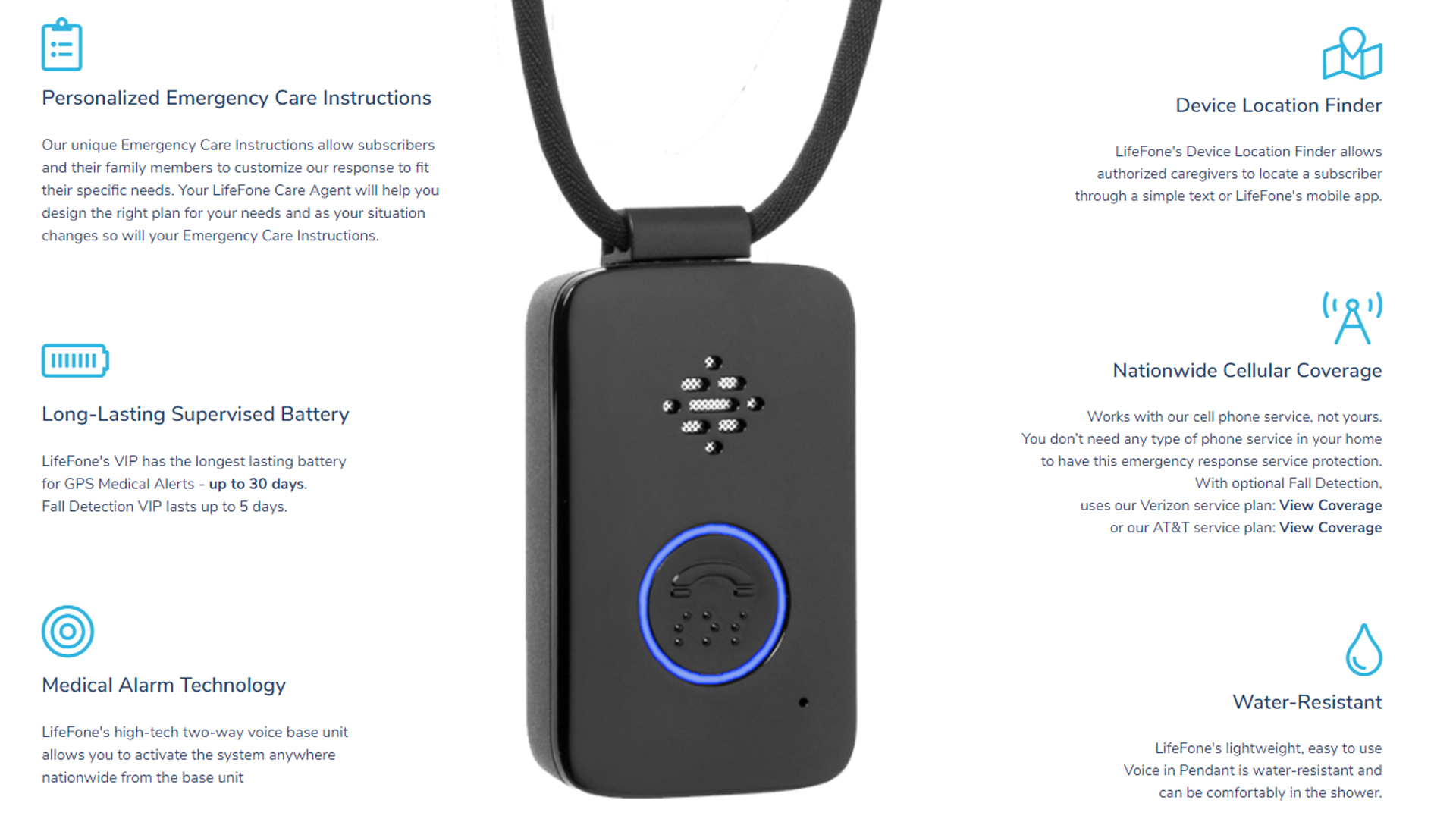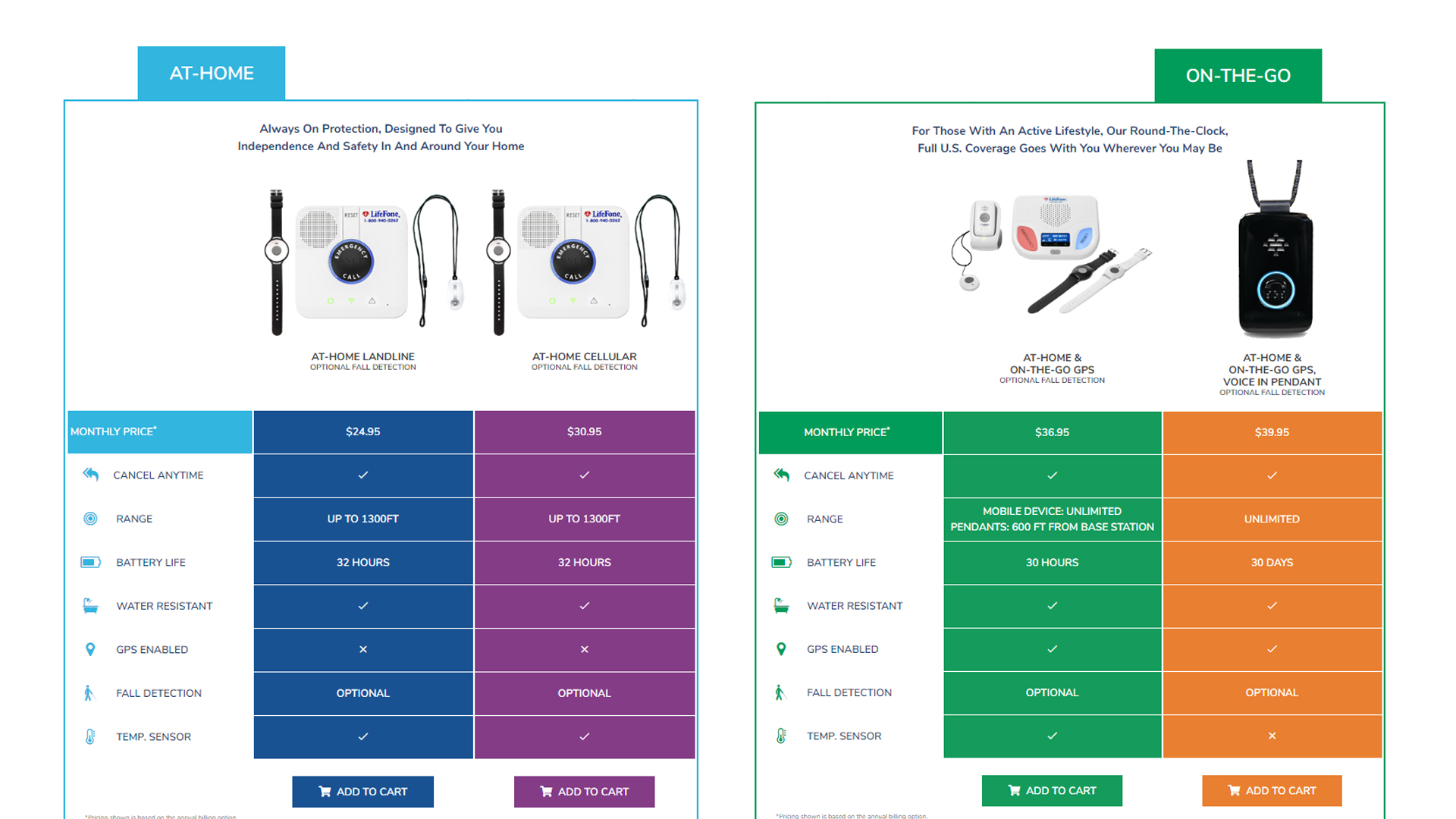TechRadar Verdict
LifeFone is a reliable medical alert service with good audio quality and fast response times. However, it's not the most affordable option and there are similar services with better value available.
Pros
- +
Good call response time
- +
Excellent call quality
- +
Wide choice of plans
- +
Included devices
Cons
- -
Fall detection sensor causes false alerts
- -
Lacks some additional options
- -
Cost
Why you can trust TechRadar
Established in 1976 and headquartered in White Plains, New York, LifeFone is a highly reputable medical alert company devoted to delivering emergency assistance to seniors and individuals in need. Their diverse offerings include at-home and mobile systems utilizing landline or cellular connections, ensuring seamless communication with their 24/7 monitoring centers. Additionally, they provide a cutting-edge smartwatch featuring GPS, fitness tracking, and text-to-speech capabilities.
LifeFone is a BBB-accredited organization that proudly holds an A+ rating. Positive customer reviews consistently highlight the effortless installation process, exceptional service reliability, and the friendly and supportive staff. LifeFone's unwavering commitment is to provide a sense of security and peace of mind to its thousands of customers across the United States.
LifeFone: Medical alert systems
Regarding residential landline and cellular services, LifeFone employs the identical medical alert system utilized by Medical Guardian's landline system. During our evaluations, this specific system (the manufacturer of which could not be ascertained) demonstrated a considerably longer wireless pendant range. It achieved a range of 2,000 feet, surpassing its specified range by 400 feet.
However, it is important to note that while an extensive range allows for greater mobility within one's yard and surrounding area, it does not necessarily imply that it should be utilized in such a manner. If your mobility extends beyond the confines of your home, a mobile medical alert system may be a more prudent choice. In the event of a false alarm triggered by a fall detection pendant (a not uncommon occurrence) while you are outside your home, an ambulance may be dispatched unnecessarily.
The On-the-Go and At-home package includes the MobileHelp CBS2-01 device and the MobileHelp GPS mobile system. Both are widely utilized and highly sought after, with five of the services we reviewed incorporating them.
The popularity of the MobileHelp device can be attributed to several distinguishing factors. Notably, its speakerphone provides exceptional audio quality, ensuring clear and effective communication with emergency operators, despite not being as loud as the MyTrex MXG. Moreover, the device incorporates a display that indicates the strength of the cellular signal, allowing users to strategically position it within their homes for optimal reception. Additionally, the display conveniently displays the current time and temperature.

The fall detection pendant, which costs an additional $5 to the monthly service fee, was found to be disappointing and lacking in reliability. During our testing, the pendant demonstrated a high level of sensitivity, resulting in numerous false alarms. This underscores the potential drawbacks of an extended range, particularly for fall detection pendants. If the sensitive sensor triggers an alert and the user is too far from the base station to communicate with the operator to confirm it as a false alarm, it may result in unnecessary emergency medical assistance.
Sign up to the TechRadar Pro newsletter to get all the top news, opinion, features and guidance your business needs to succeed!
Also keep in mind that in the United States, as a precautionary measure against legal liabilities, most emergency medical technicians (EMTs) are required or compelled to transport seniors to the hospital for evaluation, even in non-emergency situations.
These considerations aside, the Numeris Libris mobile device's fall detection sensor is decidedly superior. Although not flawless, it exhibits a relatively high degree of accuracy in detecting falls. While some Numera Libris devices we have tested have been overly sensitive, the fact that it is a mobile device allows you to easily communicate with the operator and clarify that you are not experiencing an emergency.
LifeFone: Emergency response center
During the initial three-week daily testing phase, LifeFone demonstrated a commendable response time, averaging 45 seconds to answer calls for assistance. This performance surpassed the overall average by a significant margin of 25 seconds. In fact, LifeFone stood second only to GreatCall, which achieved an impressive average of 20 seconds per call. Subsequently, in the second phase of three-week daily testing, LifeFone further improved its performance, reducing the average response time to 37 seconds per call. It is worth noting, however, that other service providers such as Medical Guardian and GreatCall also exhibited improvements during this phase. Consequently, while LifeFone may not have secured the title of the fastest response time, it has firmly established itself as one of the most expeditious services in answering calls.

Our assessment of the call quality was above average. The operators consistently spoke clearly and at a pace well-suited for seniors, who often find it challenging to follow phone conversations. Additionally, the operators verified our well-being and identity during almost every call, which could pose a security issue. Furthermore, we appreciated the operators' practice of signaling the end of the call, as many other services end calls abruptly without any indication from the operator. The signaling system offers reassurance that the call has ended and that the operator is no longer connected.
The sole drawback was the infrequent occurrence of operators exhibiting signs of disinterest and boredom during certain calls. It is understandable that toward the end of their shifts, a small number of operators may exhibit fatigue and diminished enthusiasm. Nonetheless, when contrasted with other calls characterized by engaged operators who communicate in a reassuring and calming tone, this disparity can be jarring.
LifeFone: Medical alert service
According to the LifeFone website, the pricing for their medical alert systems varies depending on the type of service, the billing option, and the optional features. LifeFone has six medical alert plans that cater to different lifestyles and needs. They are:
At-Home Landline: This plan uses a landline connection to provide 24/7 protection at home. It costs $24.95/month with annual billing, $27.95/month with quarterly billing, or $29.95/month with monthly billing. You can add fall detection for $5/month.
At-Home Cellular: This plan uses a cellular connection to provide 24/7 protection at home. It costs $30.95/month with annual billing, $32.95/month with quarterly billing, or $34.95/month with monthly billing. You can add fall detection for $5/month.
At-Home & On-the-Go VIPx: This plan uses a cellular connection for unlimited range, and GPS to provide 24/7 protection at home and away. It costs $41.95/month with annual billing, $43.95/month with quarterly billing, or $46.95/month with monthly billing. You can add fall detection for $10/month and a caregiver app for $7/month.
At-Home & On-the-Go VIP Active: This plan uses a cellular connection via a simpler device with a shorter battery life, and GPS to provide 24/7 protection at home and away. It costs $39.95/month with annual billing, $41.95/month with quarterly billing, or $44.95/month with monthly billing. You can add fall detection for $10/month.

At-Home & On-the-Go VIP flex: This plan uses a cellular connection and GPS to provide 24/7 protection at home and away via a wristband device. It costs $41.95/month with annual billing, $43.95/month with quarterly billing, or $46.95/month with monthly billing. You can add fall detection for $10/month.
At-Home & On-the-Go Safe Watch Active: This plan uses a smartwatch with cellular connection and GPS to provide 24/7 protection at home and away. It costs $45.95/month with annual billing, $47.95/month with quarterly billing, or $49.95/month with monthly billing. You can add fall detection for $10/month. The watch has a color display, but it only has a 24 hour battery life.
All plans include free activation, free equipment, free shipping, and a price-lock guarantee. You can cancel anytime without any penalty. You can also get free spouse monitoring with any at-home system.
LifeFone: Support
If you need help with your LifeFone system or service, you can contact their customer service by phone or email. They can be contacted directly, either via a toll free number, or via email. We also like that there is a dedicated line for “Emergency Care Instructions.” The hours of operation for the customer service and sales support team is from 8 am to 10 pm Eastern Standard Time, seven days a week, including holidays.

There is also an online account portal for paying bills, updating a profile, and managing the settings. For self help, there is a FAQ and a blog. We did not find any chat,or a support portal, but we did locate a few user guides and videos.
LifeFone: Final verdict
LifeFone offers reliable systems, impressive performance, and exceptional customer support, making it a solid medical alert service. Choosing LifeFone is a wise decision, as its systems deliver clear audio quality and surpass standard emergency response times.
However, it is crucial to acknowledge that LifeFone is comparable to other medical alert services in the market. While its performance and service are commendable, they do not significantly set it apart from its competitors.
Although LifeFone remains a reliable choice, there are more cost-effective options available that provide better value and enhanced benefits.
We've listed the best medical alert with GPS tracking.
Jonas P. DeMuro is a freelance reviewer covering wireless networking hardware.
